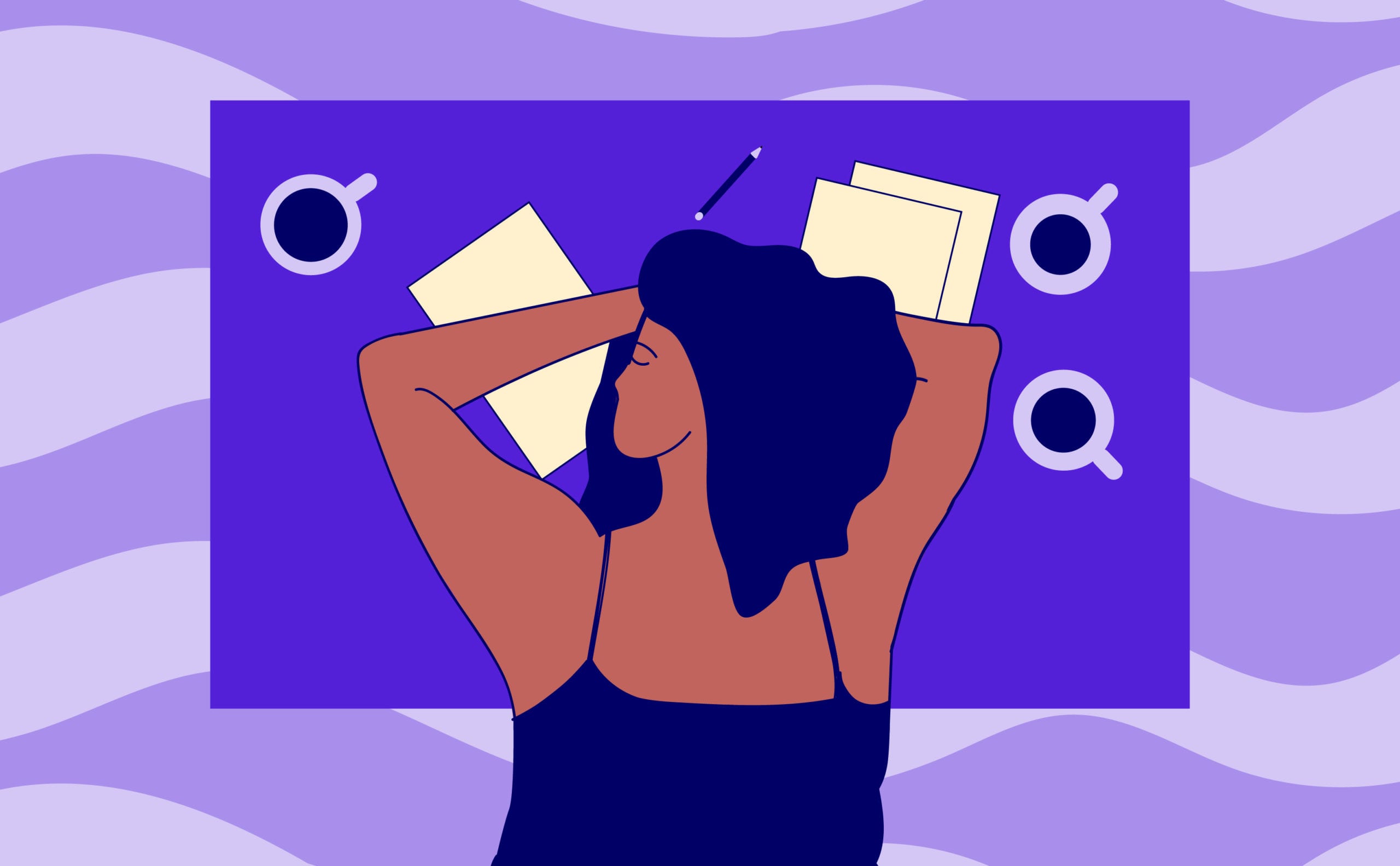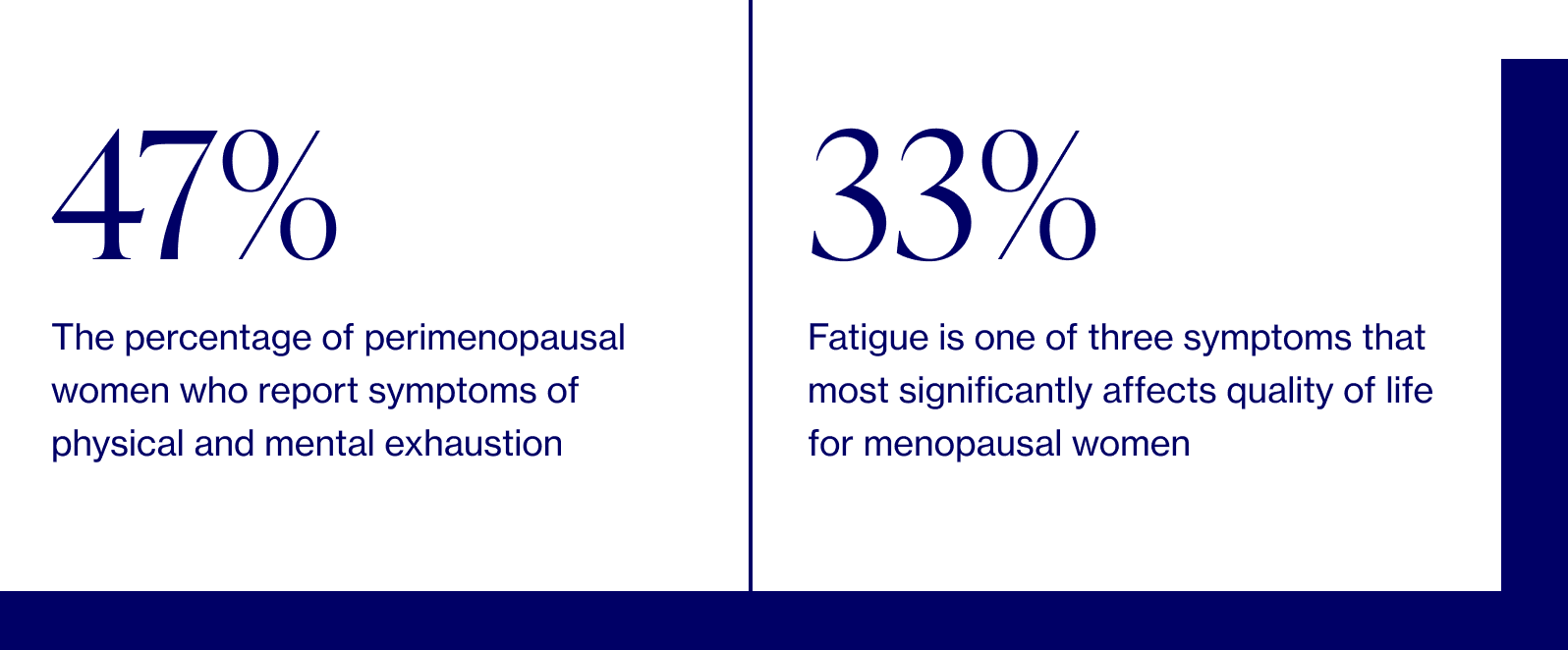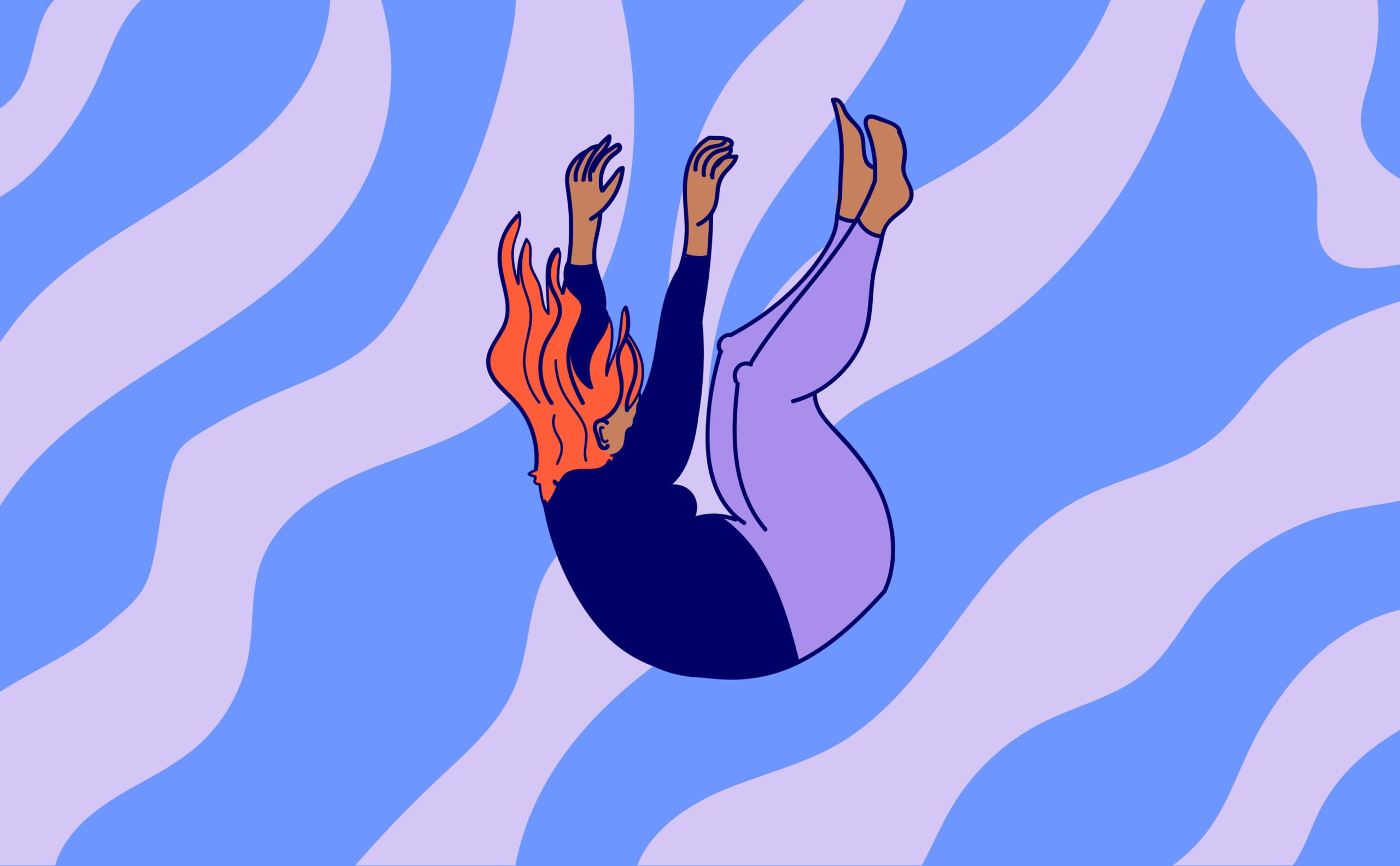Alongside mood and anxiety, fatigue is one of the most interconnected and multi-faceted symptoms of menopause; it impacts physical, emotional, and cognitive health.

Listing all the possible causes for something as complex as fatigue would be impossible, which is our way of saying that what you’re about to read is in NO way a comprehensive list. However, if we had to drill down to the most prevalent causes of menopause-related fatigue, it’d be hormone fluctuations, emotional and physical health conditions, and vitamin and nutrient deficiencies.
Hormones
Hormones don’t act in a silo. They’re constantly interacting with each other to produce certain effects. During menopause, hormonal changes can have a direct and indirect effect on energy levels.
Estrogen and progesterone
As these hormones start to fluctuate during perimenopause, many women experience symptoms like stress, anxiety and sleep disruption. And the downstream effect of those: you guessed it, fatigue. Many women can experience worsened fatigue right before their periods, especially if they suffered from it before, when the levels of these hormones are lowest. It can really feel like a roller coaster, with high I-can-do-anything energy one week and a major crash the next.
Cortisol
As cortisol (our stress hormone) rises because we’re aging, sleep can be impacted. And voila, you’re left with the perfect storm. Increasing cortisol leads to poor sleep, which leads to fatigue, which causes stress, which leads to more cortisol…it’s a vicious cycle.
Testosterone
Testosterone, another one of the sex hormones in women, also tends to decrease across the menopausal transition, albeit more slowly. (Interesting fact: it actually starts to declines in our late 20s). Low testosterone is linked to decreased libido and muscle mass. Although some advocate testosterone supplementation for fatigue, unfortunately there is not sufficient evidence of direct improvement in energy with testosterone treatment in women. For now at least, testosterone treatment is typically limited to helping with low libido/desire.
Thyroid
Although not directly related to menopause, the thyroid hormone plays a key role in metabolism. If your body isn’t producing enough — aka hypothyroidism — you can experience fatigue, weight gain, dry skin, and thinning hair (sound familiar?). Risk of hypothyroidism increases from 3% in your 40s to 10% by the time you turn 65. If you’re experiencing significant fatigue, talk to your doctor about having your thyroid levels checked. It’s a simple blood test.
Emotional conditions
Certain emotional conditions can have a marked effect on our energy levels. For more information, refer to our comprehensive guides covering anxiety, depression, and mood swings. And fatigue and emotional health are bidirectional, meaning that depression/anxiety can result in feeling fatigued and having low energy, while feeling tired all of the time contributes to negative emotions.
Vitamin deficiencies
Hormones aside, there are certain vitamin deficiencies that can cause increased fatigue during menopause, including iron (a lack of which causes anemia), B vitamins (especially B12), and vitamin D (the sunshine vitamin).
Even if you aren’t suffering from a specific medical condition, it may be worth consulting your healthcare provider (or Elektra!) if you identify with one or several of the following:
- You experience daytime fatigue that interferes with work/home responsibilities.
- You worry about falling asleep while driving or doing inactive things (e.g., watching television or attending a meeting).
- You feel the need to nap most days.
Physical health conditions
The following physical health conditions may zap your energy in a very real way during menopause:
Anemia
Although there are several different causes, anemia results in a lack of sufficient healthy red blood cells to carry oxygen to your body’s tissues.
Sleep apnea
Chronic obstructive sleep apnea is marked by abnormal breathing, specifically extended pauses in breath during sleep due to an upper airway obstruction. Central sleep apnea, on the other hand, occurs when our brain simply doesn’t send the correct signals to the muscles in charge of breathing. We may not know we have it — oftentimes, the only symptom is feeling tired even though we may be sleeping through the night.
Post-viral syndrome
There are a number of infectious and post-infectious causes of fatigue that may be worth exploring if nothing more routine pops up. The list is long and can include Epstein-Barr virus (the cause of mononucleosis), the flu, Lyme, or even recent Covid infection. If you are experiencing severe, debilitating fatigue with no clear explanation, talk to your doctor. It may be worth it to rule those out.
Other
Medication side effects, renal disease (aka kidney disease), liver disease, and cardiac disease may impact energy levels as well.
The list above is by no means exhaustive, there are many other causes of fatigue. To know if your fatigue symptoms warrant a visit to your healthcare provider, ask yourself the following questions:
- Are you sleeping 7-9 hours per night and STILL feeling tired?
- Is your tiredness affecting your quality of life/work performance?
- Do you worry about falling asleep while driving or doing inactive things (e.g., watching television or attending a meeting)?
Dr. Anna Barbieri, MD
Pro tip #1
Somehow, at some point, a baseline level of fatigue became “normal” — expected even. And while we may have learned how to deal with it, that doesn’t make it okay. But when you do commit to addressing fatigue, remember that it may take a bit of digging (and patience!) to get to the underlying cause.





